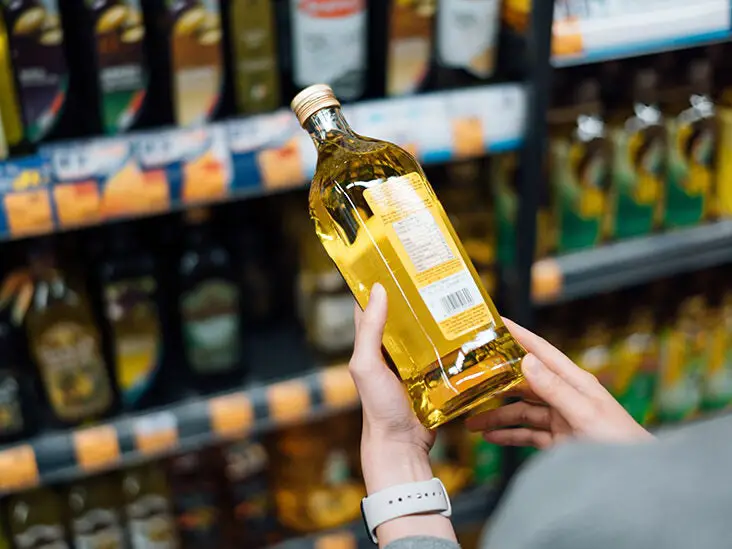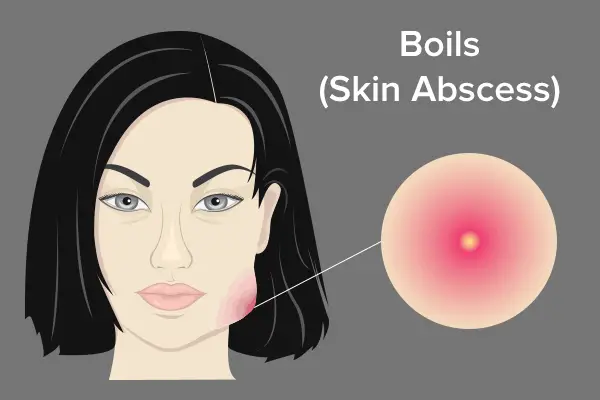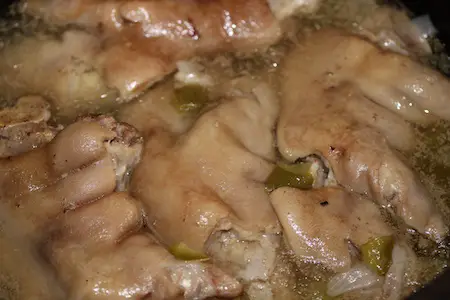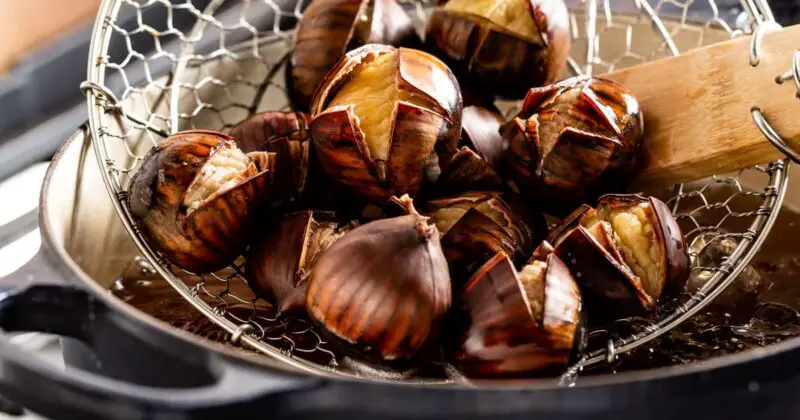Is It Bad to Drink Cooking Oil?
Cooking oil is a staple ingredient in most households around the world. It’s used in frying, baking, roasting, sautéing, and much more. You would rarely come across a home that doesn’t have various types of cooking oils stored in a kitchen cupboard somewhere. However, while this ingredient may be essential in the kitchen, it leads us to ask ourselves a question: Is it bad to drink cooking oil?
Introduction
Cooking oil refers to any edible oil that’s used in preparing food. It can be derived from plants, animals, or synthetic chemical compounds. The composition of cooking oil varies depending on the source of the oil.
Consumption of cooking oil has long been debated as it has both positive and negative impacts on the human body. In this article, we’ll dive deeper into what cooking oil is made of and what effects drinking it can have on our bodies.
The Nutritional Composition of Cooking Oil
Cooking oils comprise different types depending on their nutritional components and preparation methods. Here are some widely used oils:
Olive Oil:
- Rich in antioxidants
- High amounts of monounsaturated fatty acids
- Limited saturated fatty acids
- No trans fats
Canola Oil:
- A low amount of cholesterol
- Adequate supply of vitamin E
- Monounsaturated fatty acids present in large amounts
Palm Oil:
- High prevalence of saturated fatty acids,
- Low presence of monounsaturated and polyunsaturated fatty acids
- Vitamin E and K present in significant amounts
However, just because cooking oils have some beneficial components, it does not mean we should consume large quantities of them. Every type of cooking oil has different health risks associated with consuming it excessively.
The Dangers of Drinking Cooking Oil
The human body requires some level of fat to function properly. Therefore, it’s not entirely detrimental to consume small amounts of cooking oil. Nonetheless, excessive consumption can lead to several health issues.
Risks associated with consuming large amounts of cooking oil:
- Obesity: Excessive consumption of high-fat content cooking oils is known to contribute to obesity.
- Heart Diseases: Regularly consuming high levels of unhealthy fats can elevate your risk of developing different types of heart diseases. LDL (low-density lipoprotein) cholesterol can narrow or block blood vessels, leading to heart attacks amongst other cardiovascular problems.
- Diabetes: A poor diet consisting majorly of saturated fats can significantly increase the likelihood of developing type 2 diabetes.
- Digestive issues: Drinking excessive amounts of cooking oils can lead to diarrhea and abdominal discomfort amongst other digestive problems.
Several scientific research studies have provided enough evidence supporting the risks associated with drinking cooking oil. One investigation found a direct link between refined soybean oil intake and adverse mental health effects like anxiety and depression in rats (source). Researchers suggest that this could be because refined soybean oil leads to changes in gut bacteria affecting the digestive system causing these negative consequences for mental health.
Myths About Drinking Cooking Oil
Several misconceptions about drinking cooking oil prevail globally. These myths may stem from a lack of understanding or misinformation. Nevertheless, it’s essential to debunk and clarify them.
Myth: Drinking a small amount of cooking oil is harmless
The human body requires fat to digest other nutrients, produce hormones in the body as well as transport them.
But even with this in mind, excessive intake can still lead to undesirable health effects. Even if you consume small amounts, it can accumulate to greater problems down the line.
Myth: Coconut oil can cure diseases
Coconut oil indeed has certain beneficial properties. It contains fatty acids known for their antibacterial and antifungal components, making it very effective in skincare. However, as far as any disease treatment goes, coconut oil falls short of any real claims.
Myth: Vegetable oil is healthy
The misconception that vegetable oils are healthy is driven by misinformed advertising by different brands. Some vegetable oils made from soybeans, canola seeds, cottonseed or corn might negatively impact your health instead of benefiting it. Products from a natural source like avocados tend to be much healthier.
Harmful Effects of Refined Vegetable Oils
Refined Vegetable Oil undergoes heavy processing that strips away some beneficial components and introduces harmful chemicals such as trans fats. Here are some negative effects:
- Elevated triglyceride levels
- Promotes inflammation that leads to several illnesses
- Grotesque formation on vital organs leading to organ failure over time
- Frequent consumption related to increased risk of heart disease
Harmful Effects of Heated Oils
Heating cooking oil beyond its high-temperature threshold results in damaging the fatty acids present. This transformation equates to removing essential nutrients while introducing harmful chemicals called oxidized fats. Consuming oxidized fats can lead to cancer, peripheral artery disease, and several other health problems.
Safe Alternatives to Consumption
We do not necessarily have to consume excess amounts of cooking oil as there are healthier alternatives. Here are some examples:
- Using air fryers rather than deep-frying or pan-frying food.
- Grilling, boiling or steaming food instead of frying.
- Choosing healthier sources of fat, including avocado and nuts.
How to Check Quality Cooking Oil
The following elements help ensure that you make an informed decision while purchasing your cooking oils:
- Date Of manufacturing and expiry dates
- Type: extra virgin olive oil, cold-pressed, etc.
- A visual and smell test can help detect any foul-smelling or off-color oils accurately.
Conclusion
Cooking oils play an essential role when it comes to preparing meals, but too much intake can lead to drawbacks such as obesity and heart disease. We must take caution when consuming our food containing fats with unhealthy portions. In addition to that, choosing healthier sources of fats can prove more beneficial in the long term. By checking for quality during purchase and using alternative meal preparation methods like air frying instead of deep-frying, we assure ourselves better health benefits along the way.
Frequently Asked Questions
Can drinking cooking oil harm my body?
Yes, consuming cooking oil in large quantities can lead to health problems. The high levels of fatty acids and calories present in the oil can cause weight gain and heart diseases. Moreover, drinking hot cooking oil can also lead to burns in the mouth, throat, and digestive tract.
What are the symptoms of consuming cooking oil?
The symptoms of drinking cooking oil include nausea, vomiting, diarrhea, abdominal pain, flatulence, and indigestion. In severe cases, it can also cause respiratory distress, coma, or even death. It is important to seek medical attention immediately if you experience any of these symptoms after ingesting cooking oil.
What are the alternatives to drinking cooking oil?
Instead of drinking cooking oil, you can use it for cooking or frying. If you want to reduce your fat or calorie intake, you can opt for alternative sources of healthy fats such as avocados, nuts, seeds, fish, and olive oil. Drinking plenty of water is also essential as it flushes out toxins from the body and helps maintain a healthy digestive system.
How much cooking oil should one consume in a day?
The World Health Organization recommends that adults consume no more than 30% of their daily caloric intake from fat. This includes all types of fat including saturated and unsaturated fats found in various foods including oils. In general it’s good practice not to have too much fat in your diet and balance that intake with whole foods that have ample minerals needed for vital body function.






